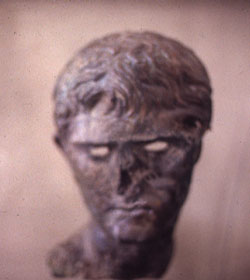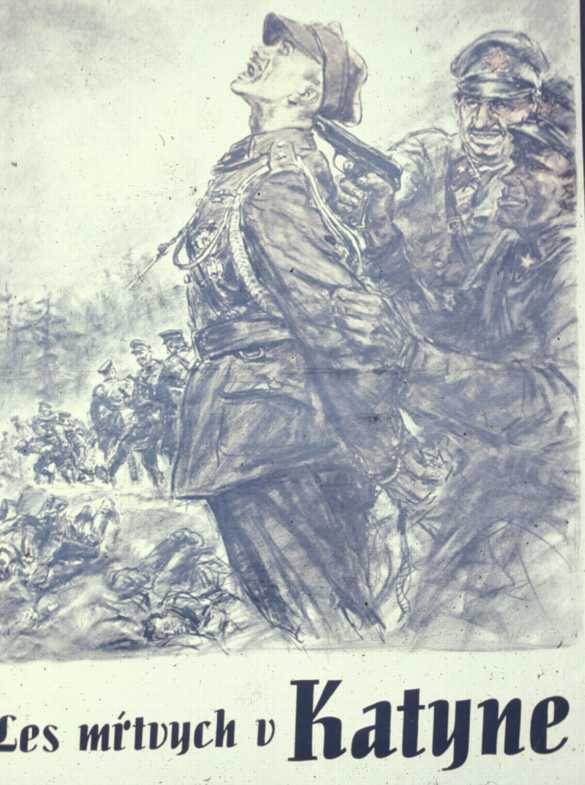January 24

0041 Death: Gaius Caesar, better known as Caligula, Roman Emperor from 0037. Caligula, or Little Boots, had succeeded Tiberius and had become so unpopular he is assassinated this day by Cassius Chaerea at the Palatine Games. (Bradley)
0076 Birth: Hadrian, Roman emperor; will expand the Empire and build Hadrian's Wall.
0661 Death: Caliph Ali, son-in-law of the prophet Mohammed, is murdered in the mosque at Kufah in Iraq.
1076 Synod of Worms: German bishops renounce their allegiance to Pope Gregory, who responds by excommunicating Henry IV.

1616 Willem Schouten becomes the first European to round Cape Horn. "...Le Maire believed there was passage from the Atlantic into the Pacific which would not use the disallowed Strait of Magellan, and he hired a competent navigator, who had already made three trips to the South Seas islands. His name was Willem Schouten. Together, they put together a plan for their new company. The company was to travel in search of the South Pacific gold riches prominently mentioned by Quiros. Le Maire, Schouten, and Schouten's son (Jacob) joined with the city leaders of the town of Hoorn and raised money for two ships, which were outfitted for the passage. The outfit was known as the Goldseekers. The ships were the larger Eendracht and the smaller Hoorn, and sailors were hired for a journey, the details of which they were not to know. Where these ships were to go was not public knowledge, but the company had come to be known as the Goldseekers, though it was more properly recorded as The Australian Company. The company sailed from England in May 1615. Crossing the Atlantic and reaching the South America shore was not done without mishap, but both ships survived the problems. With relief, the sailors properly beached the ships on the shore of Patagonia in order to clean them before continuing on to the Pacific. It was in this process that the Hoorn was accidentally set alight and burned to destruction. The expedition continued with the Eendracht alone. In January 1616 (southern summer) Le Maire and Schouten did pass the Eendracht through a route south of the Straits of Magellan, a route now called the Straight of Le Maire. To his left Le Maire noted the land mass (unexplored) as Staten Landt, perhaps a portion of the great southern continent. In fact, the land was an island, but the possibility of a large Staten Land persisted. Tasman considered New Zealand may be part of Le Maire's Staten Land. As Le Maire and Schouten passed the most southerly tip and moved into the great ocean to the west they noted the point and called it Cape Hoorn, which has endured onto maps today. The Eendracht entered the great southern ocean..."
1742 Charles Albert, elector of Bavaria, is chosen as Holy Roman Emperor in succession to Charles VI. As Charles VII, he is elected to oppose the Habsburg, Francis, husband of Maria Theresa. (Bradley)

1848 James Marshall (or Sutter?) discovers gold at Sutter's sawmill, sparking off the Great Gold Rush. (Bradley)
1862 Birth: Edith (Newbold) Wharton (Jones), US novelist and Pulitzer Prize winning author; her work will be influenced by her friend Henry James, and is mostly set in New York society; The House of Mirth 1905, the rural Ethan Frome 1911, The Custom of the Country 1913, and The Age of Innocence 1921. (Bradley)
1888 The typewriter ribbon is patented by Jacob L. Wortman of Philadelphia, Pennsylvania.
1895 Death: Sir Randolph Churchill (left, above), father of Winston Churchill (mother, above left). At the time of his death, his estate owes Nathaniel "Natty" Rothschild and Rothschild's Bank more than 66,000 pounds, a huge sum at that time. Had this been generally known, it would have caused a major scandal since he had always shown great favor to the Rothschild family and its various business interests. (The Churchills)
1915 WW1: A British fleet under Admiral Beatty defeats the Germans under Von Hipper at the battle of Dogger Bank, sinking the armored cruiser Blucher killing 870.

1916 WW1: Conscription to the Armed Forces is introduced in Britain.
1916 The US Supreme Court rules that income tax is unconstitutional.
1922 Christian K. Nelson, of Onawa, Iowa, patents an ice cream confection known as an Eskimo Pie.
1934 Alfred Rosenberg is appointed deputy of the Fuehrer for the supervision of the spiritual and ideological training of the National Socialist Party. (Lewy)
1935 Hitler again meets with Josef Lipski, the Polish ambassador. Hitler tells Lipski that "the moment will come when Poland and Germany will be forced to defend themselves from Soviet aggression."
1935 The Krueger Brewing Company places the first canned beer on sale in Richmond, Virginia.
1938 German War Minister Blomberg is forced to resign and army Commander-in-Chief Fritsch is accused of homosexuality and then sent away on leave.
1939 Holocaust: Goering orders Reinhard Heidrich to establish the Reich Central Office for Jewish Emigration is established to organize and accelerate the emigration of the Jews. Heydrich names Gestapo chief Heinrich Mueller to head the department. Almost 80,000 Jews will leave Germany in 1939. (Days) Note: Goering commissions Heydrich to bring the "Jewish question to as favorable a solution as present circumstances permit." (Apparatus)
1939 Holocaust: Germany and Poland reach an agreement on Jewish deportees. One thousand Jews at a time may return to Germany to settle their accounts. A special proprietary account for this purpose will be set up in Germany for deposits only. (Edelheit)

1941 Death: Gottfried Feder, leading ideologist and cofounder of the DAP. Feder drafted the first Nazi party program, but his influence waned during the early 1930s.

1943 WW2: A meeting between Prime Minister Winston Churchill and President Franklin Roosevelt at Casablanca ends with demands for unconditional surrender and plans made for a cross-channel landing in 1944.

1944 WW2: A Soviet Special Commission claims that the Nazis are guilty of Katyn.
1945 WW2: SS leader Heinrich Himmler who has no operational talent or experience is appointed by Hitler to lead a new Army Group Vistula to oppose the main Soviet thrusts. This is seen as an extreme insult by members of the German General staff. Note: Even Hitler will later admit that Himmler is a complete bust as a fighting leader, spending the most difficult periods of his command in the clinic with a 'nervous stomach.'
1945 WW2: The French First Army takes several crossings over the Ill River in Alsace.

1946 The Atomic Energy Commission is established by a United Nations general assembly resolution on this day. The resolution was initiated originally by the United States, Canada and Britain.
1960 A major insurrection begins in Algiers against French policy in the country.
1961 A US B-52 bomber with two 24-megaton nuclear bombs crashes near Goldsboro, North Carolina.

1965 Death: Winston Churchill, at age 90. After telling his son-in-law, Christopher Soames: "I am so bored with it," he never again makes an intelligible remark to anyone. Note: Churchill dies at his home at 28 Hyde Park Gate in London shortly after 8:00 a.m. on the seventieth anniversary of the death of his father, Sir Randoph Churchill.
1966 Mrs. Indira Gandhi, daughter of Nehru, is sworn in as Indian prime minister following the death of Sri Shastri.
1969 General Franco declares martial law in Spain following disturbances which had led to nearly 300 arrests. It will last until 25 March.
1970 Robert Moog introduces his 'Mini-Moog' synthesizer, suitable for concert stages, and costing $2,000. The American Federation of Musicians considers banning the Mini-Moog, fearing that its ability to simulate acoustic instruments could put musicians out of work. (Bradley)
1972 Japanese soldier Shoichi Yokoi is discovered on Guam, having spent 28 years hiding in the jungle thinking WW2 is still going on.
1976 Margaret Thatcher is dubbed The Iron Lady in the Soviet newspaper Red Star, after a speech about the Communist threat.
1978 The Soviet satellite, Cosmos 954, used for ocean surveillance, disintegrates over the remote North-West territories of Canada, near Yellow Knife.
1983 In Italy, 32 Red Brigade members are jailed for acts of terrorism, including the murder of former prime minister Aldo Moro.
1987 US citizen Jesse Turner, computer science professor at Beirut University College, is taken hostage in Lebanon. He will be released in October 1991.
1991 Desert Shield: Japan pledges $9 billion more to the Gulf War effort, which brings angry rejoinders from Iraq. Note: President George HW Bush's expert managing of the anti-Iraq coalition will actually allow the US to make a few dollars during the crisis. Not only that, but the mission will ultimately be accomplished. Apples do roll, indeed.
1995 A US airman and his 10-year-old son given up for dead in snow-covered mountains in Turkey are found alive after living on snow for nine days.
1996 Chechen rebels release 42 hostages seized in a raid in southern Russia after a two-week ordeal in which dozens of separatist fighters and many Russian soldiers were killed.
1996 The Warsaw military prosecutor launches a formal probe into allegations Prime Minister Jozef Oleksy had spied for Moscow.

2002 Starting January 24 of this year, the Cuban government orders a ban on sales of monitors, printers, scanners, keyboards, and other computer equipment. Government customers and individuals who obtain authorization from the Ministry of Internal Commerce are the only ones allowed to purchase such merchandise.
2002

2003

2003

2004

2004

2004

2005

2005

2005

2005

2005

2005

Visit:




 Visit:
Visit:

Click Here to email the History: One Day At a Time webmaster.